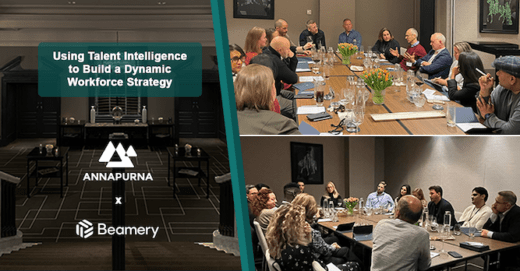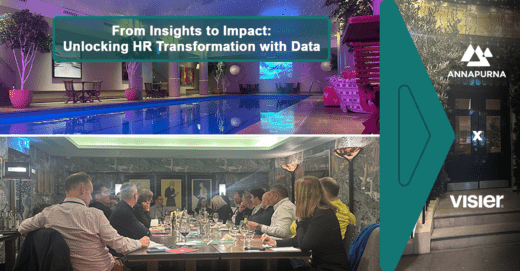The introduction of artificial intelligence (AI) technologies into the world of HR and recruitment is not just an idea anymore, it is a reality. Neural networks, machine learning and natural language processing are all being introduced into different areas of HR.
These developments contribute to the function’s increased accessibility to data-driven insights and analytics, enabling better-informed people decisions.
In recruitment and talent acquisition, AI technologies have the potential to make a significant impact by identifying candidates who can perform well in individual business environments.
However, pre-hire assessment is a complex area, and without incorporating validated behavioural science we only end up with a 2D view – instead of the 3D view we actually wanted. This is why the marriage of data, computer and behavioural sciences is essential.
By bringing together organisational psychologists, data scientists and computer scientists we truly leverage the power of artificial intelligence – and change the way candidates are recruited. It takes the recruitment process beyond the technical excellence necessary to collect and report on data and insights.
By merging these scientific areas we get;
- Computer science expertise providing the critical ‘how’ for collecting quality data.
- Data science brilliance then revealing the ‘what’ of unseen connections within that data.
- Well-constructed behavioural science explaining the ‘why’ behind those connections.
Through the combination of all three disciplines, we can access a whole extra world of meaning, enabling us to get closer to the core of what’s happening in organisations.
Behavioural science is the key to success
A recent Industrial & Organisational Psychology article pointed to the disruption taking place in the talent identification industry through new digital technologies. The authors noted that although big data is attractive, the data is often thrown together and interrogated using data science until correlations are found. This has become known as ‘dustbowl empiricism’.
My favourite for this at the moment has to be the strong correlation between the number of people who have drowned by falling in a pool, and the number of films Nicolas Cage has appeared in in any given year. Who knew how dangerous Nicolas Cage could really be?
Despite the evident danger of watching Nicolas Cage films (particularly near water), I believe there is more value in explaining behaviour than in just predicting it.
For example, is there a correlation between owning a certain type of car and being a high performer?
Perhaps, but I don’t think looking for the best candidates in car parks is very useful. After all, people change cars, and so might the correlations change between particular car models and performance. To cite another famous example, as often as people change their eating preferences, so goes the link between curly fries and intelligence.
Understanding why data is linked can suggest better ways to improve performance than just updating the carpool or changing the canteen menu.
Linking a vehicle preference to well-established behavioural science may suggest that a client considers how a candidate is innovative elsewhere in their lives, such as in their adoption of other new technologies. Or they may look for other ways the candidate demonstrates a penchant for reliability (perhaps through previous work choices).
The scientific approach
This is where organisational psychologists come in.
They have an intimate knowledge of the theories that can help interpret and explain the links between personal attributes and performance, or other variables that matter. They know how to use these theories to solve real problems and they know how to design studies and measurement tools to ensure that scientific knowledge is applied correctly in an organisational setting.
I learned a lot of organisational psychology models and theories during my Masters and PhD studies. We focused on these and the research behind them when I taught MBA and Master of Organisational Psychology programs – sometimes noting gaps in current models and theories – and designing studies to help extend or debunk what we knew.
While completing my MBA and later in a corporate role, I became skilled in applying that knowledge to the problems managers and executives face.
As an organisational psychologist I often find that it isn’t just knowing behavioural science that matters, it is knowing the behavioural science detail to understand what is most relevant for a role or business problem.
For example, consider sales performance.
Thanks to the popularity of some psychometric instruments, ‘extroverted’ or ‘introverted’ are understood as reliable ways to describe elements of a person’s personality, and many people are convinced that being extroverted is important in a sales role.
However, the research on sales performance says otherwise. An International Journal of Selection and Assessment article shows that across a range of studies there isn’t a strong link between ‘extraversion’ (broadly) and sales performance, despite this being such a common view.
Knowing the detail matters here.
A broad description of extraversion may not do a candidate justice, particularly when we’re focused on understanding performance in a particular role.
Instead, we might be interested in a candidate’s level of dominance, their sociability, what they would be like in a group setting, or presenting to a group to make a sale.
Perhaps we’d be interested in whether they are independent, adventurous, or ambitious, all of which (as potential elements of extroversion) may have different implications for sales performance.
We might also focus on the particular nature of the sales role – many roles are becoming more formalised and structured, with down-to-the-minute journey plans and call times. No wonder then that the Journal of Selection and Assessment article found another personality factor, conscientiousness, to be relevant for predicting sales performance.
The business focus
It’s the acceptance of how important behavioural science is to the new world of AI that has led me to PredictiveHire, where we believe all people decisions should be based on science, data and analytics – not just gut feeling.
PredictiveHire focuses on the things that matter.
We use validated behavioural science to build predictive models, centred on the issues your business wishes to address and their corresponding KPIs. The predictive model is based on your workforce data so it’s unique to your organisation, maximising predictive accuracy while also prioritising the candidate experience.
We use various techniques, including training a neural network to identify what drives performance in the organisation, based on the data we collect. We build our algorithms to achieve accurate predictions from the start, and the model improves over time through machine learning.
We’re now at a point where we can use behavioural science, data science and computer technology to understand the intricate links between candidate information and performance data. With that we can help reduce bias and level the candidate playing field, and give managers a 3D view of their candidates, to enable them to make the best people decisions.
Dr. Elliot Wood, Chief Organisational Psychologist at PredictiveHire
References
Tomas Chamorro-Premuzic, Dave Winsborough, Ryne Sherman and Robert Hogan, Industrial & Organisational Psychology, ‘New Talent Signals: Shiny New Objects or a Brave New World?’
Murray R. Barrick, Michael K. Mount, Timothy A. Judge, International Journal of Selection and Assessment, ‘Personality and Performance at the Beginning of the New Millennium: What Do We Know and Where Do We Go Next?’
The Business Transformation Network has posted this article in partnership with Predictive Hire.



